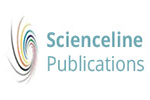(2019) Use of untreated and autoclave-treated wheat germ meal in growing rabbit diets. World's Veterinary Journal. pp. 192-200. ISSN 23224568 (ISSN)
|
Text
WVJ 9(3) 192-200, Sept 25, 2019.pdf - Published Version Download (1MB) |
Abstract
The present study was intended to investigate the influence of using 20% and 40% treated or untreated wheat germ meal in growing New Zealand rabbit diets. A total of 75 weaned New Zealand White rabbits aged six weeks old, with an average initial weight of 659.60±18.84g were divided into five groups with five replicates in each group (three rabbits per replicate). The first group was fed on a basal diet (T1), second and third groups received diets containing Wheat Germ Meal (WGM), as replacement of soybean meal protein, at levels of 20% and 40% and were labeled as T2, T3, respectively. Fourth and fifth groups were fed with 20% and 40% autoclave-treated autoclaved WGM (T4 and T5, respectively). The trial was continued until 14 weeks of age. The present study was evaluated growth performance, blood parameters, carcass traits, meat quality in different groups and also economic efficiency was calculated. There were insignificant differences in terms of live weight, daily weight gain, carcass weight and dressing percentages among rabbits in groups of T1, T2, and T4. Rabbits in the group of T4 achieved the best feed conversion ratio. Digestion coefficients of crude protein, crude fiber, ether extract, nitrogen-free extract, and nutritive value in terms of digestible crude protein, total digestible nutrition, and digestible energy did not significantly differ between T1 and T4. However, these factors significantly decreased in T3 and T5 compared to T1. Plasma total protein and globulin significantly increased in rabbits of T2 and T4 compared to those fed in T1 group. A significant decrease in total cholesterol and total lipid for rabbits in groups of T4, T5, and T2 was observed. Moreover, rabbits fed on T4 or T2 diets had the highest economic efficiency. Conclusively, the untreated or autoclaved WGM can be used in growing rabbit diets up to 20% for replacing the soybean meal protein, which caused low feed costs without adverse effects on the growth performance of rabbits.
| Item Type: | Article |
|---|---|
| Keywords: | Rabbits, Soybean meal, Wheat germ meal |
| Subjects: | Q Science > Q Science (General) S Agriculture > SF Animal culture |
| Divisions: | World's Veterinary Journal (WVJ) |
| Page Range: | pp. 192-200 |
| Journal or Publication Title: | World's Veterinary Journal |
| Journal Index: | Scopus |
| Volume: | 9 |
| Number: | 3 |
| Publisher: | Scienceline Publication, Ltd |
| Identification Number: | https://doi.org/10.36380/scil.2019.wvj25 |
| ISSN: | 23224568 (ISSN) |
| Depositing User: | Dr. Alireza Sadeghi |
| URI: | http://eprints.science-line.com/id/eprint/516 |
Actions (login required)
 |
View Item |

